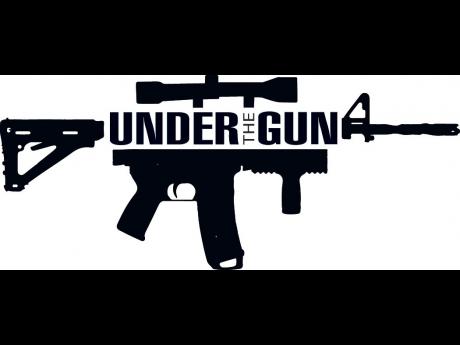Under the Gun | Scholars split on US role in gunrunning
Political psychologist and university lecturer Dr Christopher Charles has blasted local politicians, saying that they are complicit in the smuggling of illegal guns across Jamaican borders, and insists that the United States (US) has no obligation to assist in the island’s gun problem.
“Just based on how embedded our politicians are at the grass roots, it is impossible for those weapons to come in and a few of our politicians on both sides don’t know about it ... ,” Charles, who lectures in the Department of Government at The University of the West Indies (UWI), said in a recent interview with The Gleaner.
“I am confident that there are at least a few of them on both sides of the political divide.
“In that case, are they (politicians) providing the police with intelligence? If they are, then why aren’t we more successful? And, if they are not, then why not, and what can we do about this problem?” questioned Charles, who argued that clamping down on the flow of illegal guns into the island is easier than it seems.
Three hundred and two guns were seized in Jamaica between January 1 and June 1, 2019, a three-year low for the comparative five-month period. Approximately 6,600 rounds of ammunition were seized up to June 1 this year, jumping from 5,573 in 2018.
Just last Thursday, police and customs officers seized six illegal firearms and more than 1,500 assorted rounds of ammunition during an operation carried out at the Freeport wharf in Montego Bay, St James. The contraband was found in a barrel shipped to the country from Florida.
Charles is of the view that guns coming into Jamaica are strictly under the purview of local law enforcement and not the business of origin countries, such as the US.
He also posited that while local sleuths may know of some politicians involved in the illegal trade, they fail to make any meaningful probes because of fear and corruption.
“Jamaica is a very strange place, and sometimes I find it very difficult to listen to some of these politicians,” he said, explaining that many wanted criminals are active participants in political parties and campaigns and, thus, are oftentimes untouched by cops, even while in public spaces.
“The responsibility to deal with the illegal-gun issue is primarily ours, and then we can start working to build partnerships with the Americans,” he argued.
“The Americans don’t trust us. In their view, they have some of our politicians as criminals, and so why would they want to work with us?” continued Charles.
In the meantime, Dr Orville Taylor, head of the Department of Sociology, Psychology and Social Work at The UWI, who has repeatedly bemoaned the effects of gun crimes on Jamaican society, families, and children, is convinced that the US can do more.
“Part of the problem is that the US is ambivalent about gun control because it is one of the most divisive issues in America. There is a large political constituency that doesn’t want or is hysterical of gun control, and as a consequence of that, it is still too easy to obtain guns in the US,” he continued.
“In a country with the highest homicide rate in the English-speaking world, firearms coming into Jamaica, a country with a population of just 2.8 million, the impact is devastating to social order, and it also puts non-Jamaicans, tourists and so on, at risk as well,” he argued.
There have been more than 548 murders up to June 1 this year, many of which were gun-related. The St Andrew South Police Division accounted for the most, with 68 killings, while St James, which has been under a state of emergency since April 30, follows second with 58.




